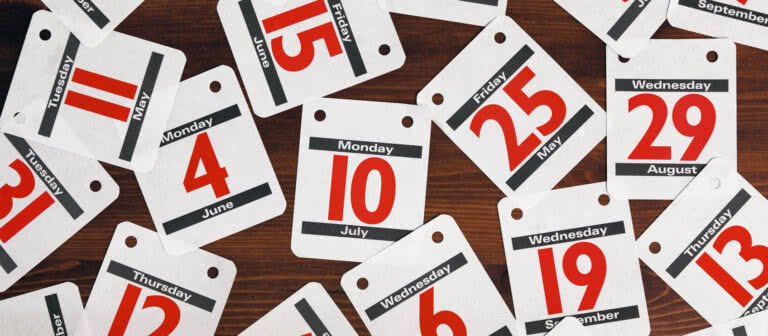

Do your events happen across many days or have multiple start times? Maybe you teach cooking classes twice a day. Or you organize walking tours that start every 30 minutes on the weekends.
For recurring events, finding the best setup can be a challenge. How do you show everything you have to offer while keeping registration as easy as possible?
In this post, we’ll walk you through the best solutions for events that:
Here’s how to set up your event with the Eventbrite feature that works best your specific event.
If you’re organizing an event that repeats on multiple dates and times (like a class or tour), you already have plenty of work on your hands. Creating dozens or hundreds of individual event listings may not be the best use of your time. Sifting through that many listings also makes it harder for people to register.
If your event’s price, location, and event description stay the same, use Eventbrite’s event schedule feature. This way you can save time by creating a single registration page on Eventbrite. The page will then list all the events in your schedule, all in one place.
Use the event schedule feature if:
What if you have too many event dates for one event listing? Create event listings for each month for single dates. Then show them all on your organizer profile.
If your event has a lot time blocks across a short timespan — for example, 30 entry times per day across three days — you can set up multiple event pages with their own event schedule. For example, you would create an event page for each of the three days, and let event-goers choose what time slot they prefer on that day’s listing. This will simplify your attendees’ purchase experience.
Here’s how to use Eventbrite’s event schedule feature if you have a lot sessions across only a few days :
Let’s go through the process with an example. Imagine you run a haunted house every Halloween. The event takes place every day for one week. The haunted house is open 5 hours a day, and tours start every 30 minutes. That’s 10 blocks of time per day. To create your event, you would:
If your event has a lot time blocks across a long timespan — for example, 30 entry times per day for three months — you can set up multiple event pages for each date. We recommend you then display individual time slots as ticket types. These ticket types will be copied over when you copy your event to create the next date, so you’ll save a lot of time when creating your events in mass.
Here’s how to use Eventbrite’s event schedule feature if you have a lot sessions each day across many days or months:
Let’s take another example. Imagine you run a summer-long coffee festival in Seattle. The festival is open every day from June through August. People can buy tickets for three different times each day. Here is the best approach to set up your event pages:
Don’t use Eventbrite’s event schedule feature if you need to manage individual sessions with different prices or times.
For example, let’s say you have different prices on Fridays, or different acts performing on different days. Maybe the event takes place in different locations across the city and each venue has its own capacity.
Do not use the Eventbrite’s event schedule feature if it’s important to have granular control over all details for each event date, or if:
Instead, we recommend you:
For example, say you run a city-wide arts & culture festival. The festival takes place across three days, and each day is at a different location. You’ll also need higher ticket prices for Sunday’s tickets, because it includes a bluegrass festival. Here’s the best method to set up your event:
Each event is different, so the best set up solution can vary. We highly recommend you test the checkout experience before you publish your event.
Put yourself in the shoes of your attendees. Look out for anything that could be confusing and find ways to address it. Are you an Eventbrite Professional or Premium subscriber? Contact your CSM for tailored advice, or get in touch with our friendly team at 1-855-211-5875.
Want to learn more about getting the most out of Eventbrite for your events? Check out this on-demand demo to see the platform in action.